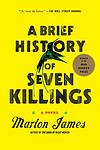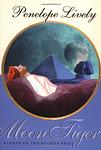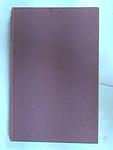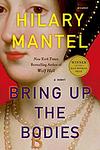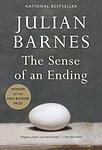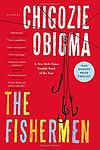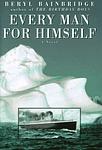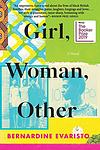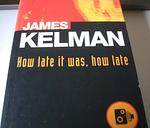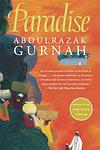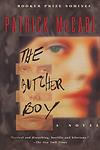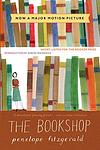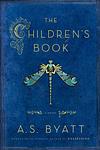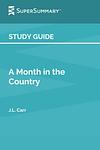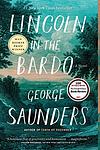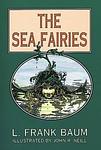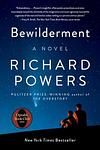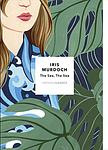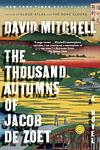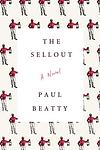70 Classic Booker Prize-Nominated Novels, Recommended by our Readers
This is one of the 305 lists we use to generate our main The Greatest Books list.
-
A Brief History of Seven Killings by Marlon James
"A Brief History of Seven Killings" is a multi-voiced novel that explores the attempted assassination of a world-famous reggae singer and its aftermath. The narrative spans decades, starting from the turbulent 1970s in Jamaica through the crack wars in 1980s New York to the changing world of the 1990s. The story is told from the perspectives of various characters, including gangsters, journalists, and CIA agents, providing a complex and gritty insight into the violent underbelly of Jamaican politics and the far-reaching influence of the drug trade.
The 1709th Greatest Book of All Time -
Moon Tiger by Penelope Lively
"Moon Tiger" is a profound exploration of memory and history, narrated by a dying historian, Claudia Hampton, who decides to write a history of the world, but it turns out to be her own history as well. The narrative moves back and forth in time, reflecting Claudia's fragmented memories, and delves into her past relationships, particularly a passionate love affair in Egypt during World War II. The novel explores themes of love, war, the fluidity of time, and the subjective nature of history.
The 1681st Greatest Book of All Time -
Sacred Hunger by Barry Unsworth
"Sacred Hunger" is a historical novel that explores the Atlantic slave trade in the 18th century. The story follows the journey of a Liverpool merchant's ship, filled with slaves, as it travels from Africa to the Americas. The narrative delves into the harsh realities of the slave trade, the inhuman conditions aboard the ship, and the moral complexities faced by the crew. After a mutiny, the survivors establish a utopian community in Florida, only to face the threat of civilization once again. The novel is a profound examination of greed, power, and the human capacity for cruelty.
The 5161st Greatest Book of All Time -
A Fine Balance by Rohinton Mistry
"A Fine Balance" is a poignant narrative set in India during the 1970s, a time of political turmoil and upheaval. The plot revolves around four diverse characters - a widow, a young student, and two tailors - who are brought together by fate. Through their interconnected lives, the book explores themes of caste, poverty, political corruption, and the human spirit's resilience. It offers a profound exploration of the delicate balance that sustains life amidst adversity.
The 384th Greatest Book of All Time -
Mrs Palfrey at the Claremont by Elizabeth Taylor
This novel focuses on the life of an elderly widow who moves into a London residential hotel, the Claremont, where she befriends the other elderly residents. She forms an unlikely friendship with a young writer, who she passes off as her grandson to the other residents. The story explores themes of aging, loneliness, and the complexities of human relationships.
The 1130th Greatest Book of All Time -
Bring Up the Bodies: A Novel by Hilary Mantel
This historical novel continues the story of Thomas Cromwell, advisor to King Henry VIII of England. The narrative follows Cromwell's rise in power and the political machinations that lead to the downfall of Anne Boleyn. It showcases the manipulative and treacherous world of the Tudor court, where a single misstep can lead to disgrace and execution. Despite the danger, Cromwell manages to navigate the treacherous waters, using his intelligence and cunning to survive.
The 2381st Greatest Book of All Time -
Loitering With Intent by Muriel Spark
In "Loitering With Intent," the narrative follows the journey of Fleur Talbot, an aspiring young writer in post-World War II London, as she navigates the complexities of her personal and professional life. Fleur finds herself embroiled in the eccentric world of the Autobiographical Association, a group dedicated to penning their memoirs for posterity, led by the manipulative Sir Quentin. As Fleur works as Sir Quentin's secretary, she discovers that her own life and the novel she is writing are becoming strangely intertwined with the lives of the association's members. This witty and satirical novel explores themes of art, reality, and the blurred lines between them, all while showcasing the protagonist's determination to maintain her integrity and identity as a writer amidst chaos and manipulation.
The 2188th Greatest Book of All Time -
The Sense of an Ending by Julian Barnes
This novel revolves around a middle-aged man, Tony Webster, who is forced to reevaluate his understanding of his past when he unexpectedly receives a lawyer's letter that drags him back into his complex history with his university friends, Adrian and Veronica. The book explores themes of memory, history, and time, showing how our understanding of the past can be distorted by our own perceptions and emotions. As Tony delves into his past, he realizes that his memories may not be as accurate as he once believed, leading to a surprising revelation.
The 1438th Greatest Book of All Time -
Atonement by Ian McEwan
Atonement is a powerful novel that explores the consequences of a young girl's false accusation. The narrative follows the lives of three characters, the accuser, her older sister, and the sister's lover, who is wrongly accused. This false accusation irrevocably alters their lives, leading to the accused's imprisonment and eventual enlistment in World War II, while the sisters grapple with guilt, estrangement, and their own personal growth. The novel is a profound exploration of guilt, forgiveness, and the destructive power of misinterpretation.
The 209th Greatest Book of All Time -
The English Patient by Michael Ondaatje
"The English Patient" is a story of four diverse individuals brought together at an Italian villa during the final days of World War II. The narrative revolves around a severely burned man who can't remember his name or past, a young Canadian nurse who tends to him, a Sikh British Army sapper, and a Canadian thief. As they navigate their own traumas and losses, the past of the mysterious patient slowly unravels, revealing a tale of love, identity, and betrayal.
The 478th Greatest Book of All Time -
The Fishermen by Chigozie Obioma
"The Fishermen" is a captivating narrative set in 1990s Nigeria, focusing on four brothers whose lives are profoundly altered after a local madman prophesies that one of the brothers will be killed by another. This ominous prediction ignites fear and suspicion among the brothers as they grow up under the watchful eyes of their strict parents in a politically unstable Nigeria. The story explores the complex dynamics of family bonds, the impact of fate intertwined with free will, and the loss of innocence, all woven into the rich cultural backdrop of a changing Nigerian society.
The 8996th Greatest Book of All Time -
Cloud Atlas by David Mitchell
This novel is a unique blend of six different stories, each set in a different time and place, spanning from the 19th century South Pacific to a post-apocalyptic future. Each tale is written in a different style, reflecting the time and setting it represents, and they are all connected through shared themes and recurring motifs. The stories are nested within each other, with each interrupted by the next, only to be concluded in the second half of the book. The novel explores themes of predacity, civilization, reincarnation and the eternal recurrence of the same behaviors throughout history.
The 449th Greatest Book of All Time -
Disgrace by J M Coetzee
"Disgrace" is a novel that explores the life of a middle-aged professor in South Africa who is dismissed from his position after having an affair with a student. After losing his job, he moves to the countryside to live with his daughter, where they experience a violent attack that significantly alters their lives. The story delves into themes of post-apartheid South Africa, racial tension, sexual exploitation, and the struggle for personal redemption.
The 245th Greatest Book of All Time -
The Handmaid's Tale by Margaret Atwood
Set in a dystopian future, this novel presents a society where women are stripped of their rights and are classified into various roles based on their fertility and societal status. The protagonist is a handmaid, a class of women used solely for their reproductive capabilities by the ruling class. The story is a chilling exploration of the extreme end of misogyny, where women are reduced to their biological functions, and a critique of religious fundamentalism.
The 70th Greatest Book of All Time -
Every Man for Himself by Beryl Bainbridge
"Every Man for Himself" is a historical fiction novel centered around the ill-fated voyage of the Titanic. The story is narrated by a 22-year-old American named Morgan, who is a nephew of the owner of the ship. The novel vividly portrays the class distinctions, social norms, and personal ambitions of the era, while masterfully building up the suspense and tragedy of the impending disaster. The narrative weaves together a complex web of relationships and events, exploring themes of love, betrayal, and the human condition against the backdrop of one of the most infamous maritime disasters in history.
The 6116th Greatest Book of All Time -
Girl, Woman, Other by Bernardine Evaristo
The novel is a vibrant portrayal of the lives of twelve different characters, primarily black British women, spanning over a century. Each character has their own unique story, tackling issues such as feminism, politics, sexuality, and identity. The narrative is a blend of poetry and prose, exploring the interconnected lives of these women and their personal struggles and triumphs. It is a powerful exploration of race, gender, and the changing face of Britain.
The 3047th Greatest Book of All Time -
In a Free State by V. S. Naipaul
"In a Free State" is a collection of three short stories and a prologue and epilogue, portraying the realities of post-colonial life and the struggles of individuals caught between their native culture and the imposed Western values. The narratives span across India, Egypt, Washington D.C., and Africa, each exploring the themes of displacement, identity crisis, and cultural conflict. The book provides a profound examination of the human condition, the concept of freedom, and the complexities of power dynamics in a post-colonial world.
The 1470th Greatest Book of All Time -
Days Without End by Sebastian Barry
"Days Without End" is a historical fiction novel that follows the life of an Irish immigrant who enlists in the U.S. Army in the 1850s. The protagonist's experiences include fighting in the Indian Wars and the Civil War, as well as falling in love with a fellow soldier. The novel explores themes of identity, love, and survival in a brutal and unforgiving era of American history.
The 4378th Greatest Book of All Time -
How Late It Was, How Late by James Kelman
The novel is a stream-of-consciousness narrative told from the perspective of Sammy, a shoplifter and ex-convict from Glasgow who wakes up in an alley after a two-day drinking binge to find he is completely blind. As Sammy struggles to navigate his new reality, he contends with bureaucratic systems, confronts his past, and grapples with his relationships, all while trying to understand and adjust to his sudden loss of sight. The story is a gritty exploration of working-class life, the human condition, and the nature of reality.
The 1333rd Greatest Book of All Time -
Life & Times of Michael K by J M Coetzee
Set in South Africa during a civil war, the novel follows the journey of Michael K, a simple gardener with a cleft lip. When his mother falls ill, he attempts to take her back to her rural birthplace. After she dies en route, Michael continues the journey alone, struggling to survive in a war-torn landscape, while also being caught up in the bureaucratic red tape of the dystopian society. The story explores themes of freedom, survival, and the human spirit's resilience against adversity.
The 836th Greatest Book of All Time -
Flaubert's Parrot by Julian Barnes
The novel centers around a retired doctor's obsession with the life and works of Gustave Flaubert, a 19th-century French writer. The doctor's fascination leads him on a quest to find a stuffed parrot that once belonged to the writer. The novel is a blend of biography, literary criticism, and personal memoir, and it explores themes such as the nature of art and the difficulties of interpreting the past.
The 629th Greatest Book of All Time -
Midnight's Children by Salman Rushdie
The novel tells the story of Saleem Sinai, who was born at the exact moment when India gained its independence. As a result, he shares a mystical connection with other children born at the same time, all of whom possess unique, magical abilities. As Saleem grows up, his life mirrors the political and cultural changes happening in his country, from the partition of India and Pakistan, to the Bangladesh War of Independence. The story is a blend of historical fiction and magical realism, exploring themes of identity, fate, and the power of storytelling.
The 38th Greatest Book of All Time -
A Little Life by Hanya Yanagihara
The novel is a deeply moving portrayal of four friends in New York City, spanning over several decades. It primarily focuses on Jude, a man with a mysterious and traumatic past, who struggles with physical disability and emotional trauma. The story explores themes of friendship, love, trauma, suffering, and the human will to endure in spite of life's hardships. It is an epic tale of heartbreak and despair but also of resilience and enduring love.
The 1588th Greatest Book of All Time -
Wolf Hall by Hilary Mantel
The novel is a historical fiction set in the 1500s, during the reign of King Henry VIII. The story is told from the perspective of Thomas Cromwell, a man of humble beginnings who rises to become the King's chief minister. The narrative explores the political and religious upheavals of the time, including King Henry's break with the Catholic Church and his controversial marriage to Anne Boleyn. The protagonist's cunning, ambition, and survival instincts are central to the plot as he navigates the treacherous waters of the Tudor court.
The 619th Greatest Book of All Time -
Never Let Me Go by Kazuo Ishiguro
The novel is a haunting tale of three friends, who grow up together at a seemingly idyllic English boarding school. As they mature, they discover a dark secret about their school and the purpose of their existence, which is to become organ donors for the rest of society. The story is a profound exploration of what it means to be human, the morality of scientific innovation, and the heartbreaking reality of love and loss.
The 387th Greatest Book of All Time -
Oryx and Crake by Margaret Atwood
Set in a post-apocalyptic world, the novel follows the life of Snowman, who believes he may be the last human on earth, as he struggles to survive in a new, harsh environment. He is surrounded by genetically modified creatures, and his only companions are the Crakers, human-like beings created by his brilliant but disturbed friend Crake. Through Snowman's memories, the story of how the world came to be this way is revealed, involving a love triangle with the mysterious Oryx and the catastrophic consequences of Crake's scientific experiments.
The 1538th Greatest Book of All Time -
Paradise by Abdulrazak Gurnah
"Paradise" is a novel set in early 20th century colonial East Africa, where a young boy named Yusuf is given away by his father to settle a debt with a wealthy merchant. The story follows Yusuf's journey as he travels with the merchant through the diverse and complex landscapes of the African continent, encountering different cultures, communities, and the harsh realities of colonial exploitation. As Yusuf matures, he grapples with issues of freedom, identity, and personal autonomy against the backdrop of a world marked by violence, trade, and the impact of European colonialism.
The 6159th Greatest Book of All Time -
Possession by A. S. Byatt
"Possession" is a novel that interweaves two storylines, one set in contemporary times and the other in the Victorian era. The contemporary plot follows two academics who uncover a secret love affair between two 19th-century poets, while the Victorian storyline presents the clandestine romance itself. As the modern scholars delve deeper into the past, they find themselves falling in love as well, mirroring the historical romance they are researching. The book explores themes of love, passion, and the power of the written word.
The 266th Greatest Book of All Time -
The Remains of the Day by Kazuo Ishiguro
The novel is a poignant tale of an English butler, Stevens, who reflects on his life and career during a road trip through the English countryside. As he delves into his past, he reveals his unquestioning loyalty to his former employer, Lord Darlington, and his unexpressed love for the housekeeper, Miss Kenton. The narrative explores themes of dignity, duty, and regret, as Stevens comes to terms with his unquestioning devotion to his employer and the missed opportunities in his personal life.
The 186th Greatest Book of All Time -
Schindler's List by Thomas Keneally
The book tells the true story of a German businessman who saves more than a thousand Polish Jews during the Holocaust by employing them in his factories. The protagonist's transformation from a greedy high living war profiteer to a savior of lives forms the crux of the narrative. It offers a chilling yet inspiring account of the horrors of the Holocaust, human resilience, and the power of one individual to make a significant difference.
The 412th Greatest Book of All Time -
Shuggie Bain by Douglas Stuart
"Shuggie Bain" is a heart-wrenching tale set in 1980s Glasgow, Scotland, centered on a young boy, Shuggie, who is struggling with his mother's deteriorating mental health and alcoholism. As he tries to navigate his own burgeoning sexuality in a harsh, unforgiving environment, he also strives to care for his mother, who is trapped in a cycle of addiction and abusive relationships. The book gives a stark portrayal of poverty, addiction, love, and the human spirit's resilience.
The 6662nd Greatest Book of All Time -
The Butcher Boy by Patrick McCabe
The Butcher Boy is a dark and disturbing tale set in small-town Ireland, following the life of a troubled young boy who descends into madness and violence. The protagonist's life is filled with neglect, abuse and mental health issues, and his increasingly erratic behavior and gruesome fantasies lead him down a path of horrific actions. The novel provides a stark exploration of the effects of societal neglect and the failure of mental health systems.
The 1115th Greatest Book of All Time -
The Blind Assassin by Margaret Atwood
The novel is a complex narrative that weaves together the story of two sisters in early 20th century Canada, one of whom publishes a scandalous novel that leads to her suicide. The surviving sister, now an elderly woman, reflects on their lives, revealing family secrets, heartbreak, and the truth behind the scandalous novel. The narrative is interspersed with excerpts from the controversial book, a science fiction story within a story, adding layers of intrigue and mystery.
The 847th Greatest Book of All Time -
The Bookshop by Penelope Fitzgerald
Set in a small, economically stagnant English town in the late 1950s, the novel follows the story of a widowed woman who decides to open a bookshop in a long-abandoned, damp house. Despite her initial enthusiasm and the potential for cultural enrichment, she faces unexpected hostility from the local community. As she struggles to establish her business, she encounters various challenges, including opposition from influential figures who have other plans for the building. The narrative explores themes of isolation, the resistance to change, and the impact of small-scale politics on personal dreams.
The 4813th Greatest Book of All Time -
The Bone People by Keri Hulme
"The Bone People" is a complex, emotional novel that explores the lives of three characters - a reclusive artist, a young mute boy, and his adoptive father - in New Zealand. The narrative delves into themes such as Maori culture, love, violence, and isolation while showcasing the struggle of these individuals as they try to form a family unit despite their personal traumas and societal pressures. The book's unique blend of prose and poetry, along with its blend of English and Maori language, adds to its depth and richness.
The 790th Greatest Book of All Time -
The Children's Book by A. S. Byatt
"The Children's Book" is a historical novel that explores the lives of several families, primarily the Wellwoods, from the end of the Victorian era through World War I. The story delves into the complex relationships between parents and children, the influence of storytelling, and the impact of political and social changes on personal lives. It also portrays the struggles of women's suffrage, socialism, and the arts and crafts movement. The narrative is intricately woven with fairy tales and myths, reflecting the characters' inner lives and the era's cultural milieu.
The 2355th Greatest Book of All Time -
Hotel du Lac by Anita Brookner
The novel follows the story of a romance novelist, who, after a love affair with a married man, is sent by her friends to a Swiss hotel to recover. At the hotel, she meets various eccentric characters, including a wealthy woman and her daughter, a mysterious, wealthy man, and a couple on their honeymoon. As she observes and interacts with these characters, she is forced to examine her own life and choices, ultimately deciding whether to accept a marriage proposal from a man she doesn't love or to continue living independently.
The 1339th Greatest Book of All Time -
A Month In The Country by J. L. Carr
This novel unfolds the story of a World War I veteran who spends a summer in a peaceful Yorkshire village to restore a medieval mural in a local church. As he immerses himself in this tranquil setting, he finds solace and a sense of healing from the traumas of war. The narrative beautifully captures the essence of rural English life, the complexities of human relationships, and the profound impact of art and history on the human spirit. Through his work and interactions with the villagers, the protagonist embarks on a journey of self-discovery, finding a temporary refuge from his tormented past and glimpses of a more hopeful future.
The 1341st Greatest Book of All Time -
The Enchantress of Florence by Salman Rushdie
This novel intertwines the history of the Mughal Empire in India and Renaissance Florence through the journey of a yellow-haired stranger who claims to be a lost relative of the Mughal Emperor, Akbar the Great. The stranger tells a tale of a hidden princess, a woman known only as the Lady Black Eyes who possesses magical powers and whose story involves a great artist and the notorious warlord, Argalia. The plot explores themes of power, love, and identity while blending history, mythology, and magic in a richly layered narrative.
The 7064th Greatest Book of All Time -
The Ghost Road by Pat Barker
"The Ghost Road" is a historical novel set during World War I that follows the experiences of a British army officer undergoing treatment for shell shock at a mental hospital. The narrative alternates between his perspective and that of his psychiatrist, who is fascinated by the psychological effects of war. The novel explores themes of trauma, memory, and the brutal realities of war, while also delving into the psychiatrist's own past experiences with a headhunting tribe in the South Pacific.
The 2255th Greatest Book of All Time -
Fingersmith by Sarah Waters
The novel is a gripping tale set in Victorian England, revolving around two young women, a petty thief and a rich heiress, whose lives intertwine in unforeseen ways. The thief is part of a con to defraud the heiress of her fortune, but as the plot thickens, the lines between deception and truth, loyalty and betrayal, love and manipulation get blurred. The narrative is filled with unexpected twists and turns, exploring themes of gender, sexuality, and class, and keeps the readers on the edge till the end.
The 696th Greatest Book of All Time -
Lincoln in the Bardo by George Saunders
The novel is set in a graveyard over the course of a single night and is narrated by a dazzling chorus of voices. The story is centered around the death of President Lincoln's 11-year-old son Willie, who resides in the Bardo, a transitional state between life and rebirth in Tibetan tradition. As Willie interacts with the other spirits stuck in this realm, his father visits the crypt to mourn, causing a struggle among the ghosts over the boy's soul. The narrative explores themes of grief, the impermanence of life, and the unresolved issues that keep us from moving on.
The 1585th Greatest Book of All Time -
The God of Small Things by Arundhati Roy
This novel is a poignant tale of fraternal twins, a boy and a girl, who navigate through their childhood in Kerala, India, amidst a backdrop of political unrest and societal norms. The story, set in 1969, explores the complexities of their family's history and the tragic events that shape their lives. Their mother's transgression of caste and societal norms by having an affair with an untouchable leads to disastrous consequences, revealing the oppressive nature of the caste system and the destructive power of forbidden love. The novel also delves into themes of postcolonial identity, gender roles, and the lingering effects of trauma.
The 225th Greatest Book of All Time -
The Narrow Road to the Deep North by Matsuo Bashō
"The Narrow Road to the Deep North" is a travelogue that depicts the author's journey through the remote and desolate northern regions of Japan. The narrative combines prose and haiku poetry to capture the beauty and spirituality of nature, as well as the author's introspective thoughts and philosophical insights. The journey is not just physical but also spiritual, as the author seeks to understand his place in the world and the essence of the human condition.
The 930th Greatest Book of All Time -
The Siege of Krishnapur by J. G. Farrell
Set in India during the period of the British Empire, "The Siege of Krishnapur" is a historical novel that explores the events of the 1857 Sepoy Rebellion. The narrative focuses on the British residents of the fictional town of Krishnapur as they endure a prolonged siege by Indian soldiers. The story delves into the psychological, social, and physical challenges faced by the besieged, and the gradual disintegration of their Victorian-era beliefs and lifestyle. The novel is a commentary on the British Empire, colonialism, and the clash of cultures.
The 406th Greatest Book of All Time -
The Secret River by Kate Grenville
"The Secret River" is a historical novel that explores the life of William Thornhill, a convict from London who is deported to Australia in the early 19th century. After serving his sentence, Thornhill stakes a claim on a stretch of land along the Hawkesbury River, where he and his family attempt to establish a new life. However, their presence leads to tension and brutal conflict with the Aboriginal people who have lived on the land for generations. The novel delves into themes of colonization, survival, and the moral complexities of claiming ownership in a new world, providing a poignant look at the personal and cultural consequences of European settlement in Australia.
The 7038th Greatest Book of All Time -
The Line of Beauty by Alan Hollinghurst
Set in the 1980s during the era of Margaret Thatcher's conservative government in Britain, this novel follows the life of a young gay man named Nick Guest. Coming from a middle-class background, he moves into the home of his wealthy friend's family and becomes infatuated with the opulence and power of the upper class. As he navigates his way through this new world, he also explores his sexuality, all while dealing with the societal and political implications of the AIDS crisis.
The 861st Greatest Book of All Time -
The Sea by John Banville
"The Sea" is a profound exploration of memory, grief, and loss. The novel follows the story of a widower who returns to a seaside town where he spent his childhood summers. His present-day experiences are interwoven with memories of a transformative event from his youth involving a wealthy family he befriended. As he grapples with the loss of his wife to cancer, he also deals with the haunting memories of the past. The narrative is a deep dive into the human psyche, exploring themes of love, loss, and the fluidity of time.
The 2139th Greatest Book of All Time -
Milkman by Anna Burns
Set during The Troubles in Northern Ireland, this novel follows an unnamed 18-year-old protagonist who is pursued by a powerful, older man known only as the Milkman. Despite her attempts to avoid him and maintain a low profile in her community, rumors spread about their supposed affair, leading to increased scrutiny and isolation. The book explores the protagonist's struggle to maintain her individuality amidst political and social turmoil, while also dealing with the pervasive threat of violence and the power of gossip in a close-knit community.
The 3688th Greatest Book of All Time -
Bewilderment by Richard Powers
"Bewilderment" is a poignant exploration of the relationship between a widowed astrobiologist and his neurodivergent son, who is struggling to cope with the loss of his mother. As the father seeks to understand his son's complex emotions and behaviors, he turns to an experimental neurofeedback therapy that uses recorded patterns of his late wife's brain activity. Set against a backdrop of ecological and societal decline, the novel delves into themes of love, loss, and the search for connection in a bewildering world. The narrative also raises profound questions about the ethics of scientific experimentation and the nature of consciousness.
The 9693rd Greatest Book of All Time -
The Famished Road by Ben Okri
The novel centers around the life of an abiku, a spirit child, who resides in the bustling city of Lagos. Despite numerous attempts to return to the spiritual world, the boy is tethered to the physical realm through the love of his mother. As he navigates through the political unrest and poverty of post-colonial Nigeria, he experiences a series of surreal and mystical encounters, all while wrestling with the pull of the spirit world. The narrative is a blend of reality and the supernatural, providing a unique perspective on the struggles and complexities of human life.
The 705th Greatest Book of All Time -
Life of Pi by Yann Martel
A young Indian boy named Pi Patel survives a shipwreck and finds himself adrift in the Pacific Ocean on a lifeboat with a Bengal tiger named Richard Parker. Over the course of 227 days, Pi uses his knowledge of animal behavior and survival skills to coexist with the tiger, ultimately leading to an unusual and deeply spiritual journey. The story explores themes of faith, survival, and the interpretation of reality.
The 566th Greatest Book of All Time -
The Sea, The Sea by Iris Murdoch
A successful and renowned London theatre director retires to a secluded house by the sea in an attempt to write his memoirs. His peaceful solitude is disrupted when he encounters his first love from decades ago and becomes obsessed with winning her back. As he spirals into self-delusion and madness, the narrative explores themes of love, obsession, and the subjective nature of reality.
The 287th Greatest Book of All Time -
The Testaments by Margaret Atwood
This sequel to a dystopian novel set in Gilead, a totalitarian society in what was formerly part of the United States, is narrated by three female characters. The book explores the inner workings of Gilead, its politics, and its eventual downfall. It delves into the lives of the women, their struggles, and their roles in the society, providing a deeper understanding of the oppressive regime. The novel also examines themes of power, resistance, and the ways in which systems of control can be challenged and eventually dismantled.
The 9073rd Greatest Book of All Time -
Empire of the Sun by J. G. Ballard
"Empire of the Sun" is a semi-autobiographical novel that tells the story of a young British boy's experiences in Shanghai during World War II. After being separated from his parents during the Japanese invasion, he is forced to fend for himself in a world turned upside down by war. The novel vividly portrays the harsh realities of life in a Japanese internment camp, where the protagonist learns to adapt and survive amid the chaos and brutality.
The 1020th Greatest Book of All Time -
True History of the Kelly Gang by Peter Carey
This historical novel is a fictionalized account of the life of Australian outlaw Ned Kelly, told in the form of a journal written to his daughter. The narrative explores Kelly's life from childhood, his family's struggles with poverty and the law, his involvement in horse thievery, and his eventual formation of the Kelly Gang. The story culminates with the gang's infamous standoff with the police at Glenrowan, providing a humanizing perspective on a figure often portrayed as a ruthless criminal.
The 960th Greatest Book of All Time -
Rites of Passage by William Golding
"Rites of Passage" is a historical novel that explores the journey of a young aristocrat, Edmund Talbot, who is traveling from England to Australia in the early 19th century. The story is told through Talbot's journal entries, which provide a detailed account of life aboard the ship, including the social dynamics, the harsh conditions, and the psychological struggles faced by the passengers and crew. The novel also delves into themes of class, power, and the human condition, culminating in a tragic event that forces Talbot to confront his own prejudices and assumptions.
The 2004th Greatest Book of All Time -
The Thousand Autumns Of Jacob De Zoet by David Mitchell
Set at the turn of the 19th century on the artificial island of Dejima in Nagasaki Harbor, the novel follows a young Dutch clerk who arrives with the East India Company to make his fortune. Amidst the strict trade confines between Japan and the outside world, he encounters a complex web of relationships, power struggles, and cultural exchanges. His life becomes intertwined with that of a beautiful, yet disfigured Japanese midwife, leading to a forbidden love affair that defies the era's rigid boundaries. As he navigates through corruption, intrigue, and the clash of civilizations, the protagonist's integrity and loyalty are put to the test in a story that explores themes of isolation, connection, and the passage of time.
The 5802nd Greatest Book of All Time -
The Underground Railroad by Colson Whitehead
This novel follows the journey of Cora, a young slave on a cotton plantation in Georgia, who escapes and embarks on a journey towards freedom via the Underground Railroad. The book presents a literal version of the historical Underground Railroad, portraying it as a physical network of tunnels and tracks beneath the Southern soil. As Cora travels from state to state, she encounters different worlds and harsh realities, each one illuminating the various forms of oppression Black people faced in America. The narrative is a brutal exploration of America's history of slavery and racism, and a testament to the unyielding spirit of those who fought against it.
The 1058th Greatest Book of All Time -
The Inheritance of Loss by Kiran Desai
This novel explores themes of love, loss, and the human struggle for identity amidst political unrest. Set in India during the Nepalese movement for an independent state, the narrative follows the lives of a retired judge living in the Himalayas, his granddaughter, and his cook. As the political situation worsens, each character must grapple with their own personal issues, including the judge's regret over his failed marriage and his granddaughter's struggle to find her place in the world. The cook, meanwhile, dreams of a better life for his son in the United States. The narrative weaves together these individual stories to create a poignant tapestry of human resilience in the face of adversity.
The 2431st Greatest Book of All Time -
Swing Time by Zadie Smith
This novel follows the lives of two biracial girls who dream of becoming professional dancers. Although they both have talent, only one of them has the ambition to pursue it. As their lives diverge, one girl becomes a personal assistant to a pop star while the other lives a life of relative obscurity. The narrative explores themes of race, class, friendship, and identity, weaving a story that spans decades and continents.
The 5360th Greatest Book of All Time -
The Vegetarian: A Novel by Han Kang
This novel tells the story of Yeong-hye, a dutiful Korean wife who, after having a disturbing dream, becomes a vegetarian, a decision that disrupts her marriage and sets into motion an increasingly grotesque chain of events at home. As her rebellion manifests in ever more bizarre and frightening forms, Yeong-hye spirals further and further into her fantasies of abandoning her fleshly prison and becoming - impossibly, ecstatically - a tree. The book is a darkly allegorical, Kafkaesque tale of power, obsession, and one woman’s struggle to break free from the violence both without and within her.
The 2924th Greatest Book of All Time -
Brooklyn by Colm Tóibín
The novel tells the story of a young Irish woman, Eilis Lacey, in the 1950s who, unable to find work at home, is sent to Brooklyn by a helpful priest where she builds a new life. She finds work, studies to become a bookkeeper, and falls in love with an Italian plumber named Tony. However, a family tragedy forces her to return to Ireland, where she must choose between her new life in America and her old life at home.
The 2618th Greatest Book of All Time -
Washington Black by Esi Edugyan
"Washington Black" is a historical novel by Esi Edugyan that tells the story of a young slave named George Washington Black, who is forced to flee a plantation in Barbados with the help of his master's brother. The two embark on a journey that takes them across the globe, from the Caribbean to the Arctic, and Washington Black discovers his talent for scientific illustration. Along the way, he faces challenges and struggles with his identity as a black man in a world dominated by white men. The novel explores themes of freedom, identity, and the impact of colonialism on individuals and societies.
The 6559th Greatest Book of All Time -
The White Tiger by Aravind Adiga
"The White Tiger" is a darkly humorous novel set in modern-day India that explores the country's class struggle through the eyes of an ambitious and cunning protagonist. Born in a poor village, he moves to Delhi to work as a chauffeur for a rich family. He eventually breaks free from his life of servitude by committing an act of shocking violence, and uses his newfound freedom to become a successful entrepreneur in Bangalore. The story, told through a series of letters written to the Chinese Premier, is a scathing critique of India's social and economic disparities, and the corruption that permeates all levels of society.
The 1511th Greatest Book of All Time -
Waterland by Graham Swift
"Waterland" is a novel that intertwines the personal history of a history teacher with the social history of the English Fens. The narrative alternates between the past and the present, exploring themes of history, memory, and storytelling. The protagonist's personal story of love, tragedy, and madness is inextricably linked to the history of the Fens, a marshy region in eastern England. The novel also addresses the question of whether history is a cyclical process or a linear one, and how the past influences the present.
The 1206th Greatest Book of All Time -
The Sellout by Paul Beatty
This satirical novel follows the story of an African-American man living in a small, agrarian town on the outskirts of Los Angeles. After his father's death, he attempts to reinstate slavery and segregation in his town as a means of creating a sense of identity for himself and his community. The novel explores themes of racial identity and equality in America, challenging societal norms and expectations through its provocative narrative.
The 1184th Greatest Book of All Time -
The Years by Annie Ernaux
"The Years" is a compelling narrative that blends autobiography and collective history to depict the evolution of French society from the 1940s to the early 2000s. Through a blend of personal memories, shared experiences, and common artifacts, the book captures the passage of time and the changes it brings to individual lives and collective identity. The author uses an innovative form of writing, eschewing a traditional linear narrative and personal pronouns, to create a reflective and powerful exploration of memory, aging, and the continuous transformation of societal norms and personal aspirations.
The 7915th Greatest Book of All Time -
A Horse Walks Into A Bar by David Grossman
In this novel, a stand-up comedian, during a performance in a small Israeli city, veers from his routine into a confessional monologue. Throughout the evening, he reveals layers of his troubled past, including childhood traumas and a complex relationship with his parents, to a mixed audience that includes figures from his own history. The narrative unfolds as a blend of dark humor and poignant drama, exploring themes of memory, pain, and the redemptive power of storytelling. As the comedian's act progresses, the audience's reactions shift from amusement to discomfort to intense engagement, mirroring the emotional journey he compels them to take with him.
The 8655th Greatest Book of All Time -
Ending Up by Kingsley Amis
"Ending Up" is a darkly comedic novel that revolves around the lives of five elderly people living together in a dilapidated cottage in England. As they grapple with the physical and emotional challenges of old age, their interactions are marked by petty squabbles, longstanding grudges, and the occasional flare-up of affection. The story delves into themes of mortality, the indignities of aging, and the human capacity for both cruelty and companionship, presenting a poignant yet humorous exploration of the inevitable decline that accompanies the end of life.
The 4489th Greatest Book of All Time
Booker Prize Library Readers, 70 Books
The Booker Library's list of must-read classics, as selected by its newsletter subscribers and social media followers, highlights the enduring appeal of books that have been nominated for the Booker Prize since its inception in 1969. These books, described as classics by journalist and author Italo Calvino, are notable for their ability to continually communicate new ideas and insights. The selected titles, drawn from over 600 nominated works, range from intimate stories to epic narratives, demonstrating a depth that rewards multiple readings and leaves a lasting impression on readers. This curated selection includes both bestsellers and lesser-known treasures, providing a comprehensive guide through the historical and contemporary highlights of the Booker Prize nominations.
Added 13 days ago.
This list has a weight of 62%. To learn more about what this means please visit the Rankings page.
Here is a list of what is decreasing the importance of this list:
- Voters: not critics, authors, or experts, but the books on the list were curated by critics/experts
- Voters: are mostly from a single country/location
- List: only covers 75 years
- List: is a follow up/honorable mention to a different list
If you think this is incorrect please e-mail us at [email protected].
